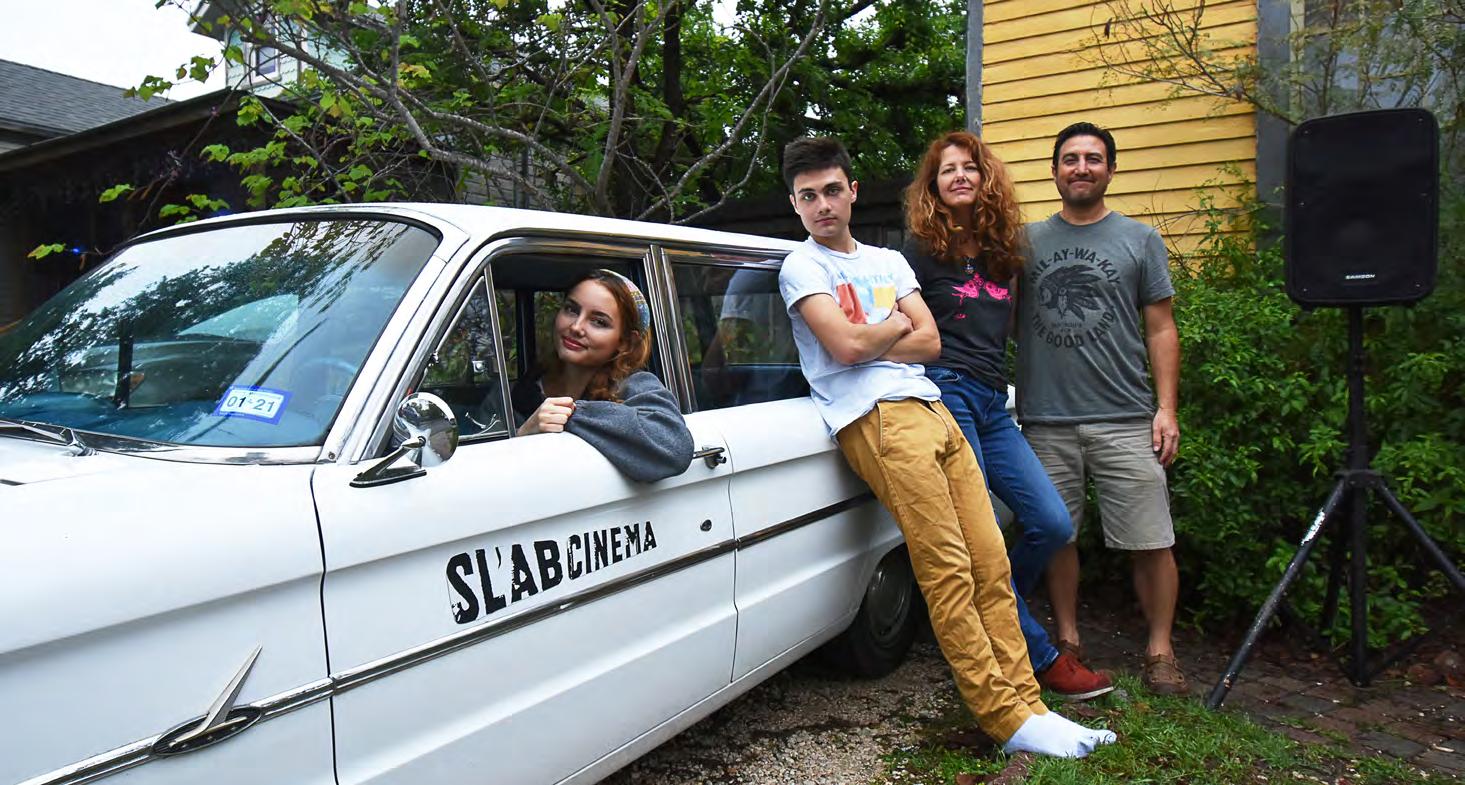Courtesy Photo / Slab Cinema
M
Cancel Culture
San Antonio’s shutdown is already taking a heavy toll on the city’s creators, service workers and small businesses BY SANFORD NOWLIN AND LEA THOMPSON
B
usiness should be in full swing for Angela Martinez. After a dormant winter, her small business Slab Cinema had lined up a slate of outdoor movie screenings for the spring. The venture accounts for more than half of her family’s annual income and also supports a handful of part-time employees. But instead of projecting films at the San Antonio Museum of Art and local parks, she and her husband Rick are hunkered down at home with their two kids, waiting out the COVID-19 outbreak. Beyond the cabin fever and lost revenue, Martinez worries about the effect the shutdown is having on San Antonio’s culture and emotional wellbeing. To be sure, we’re a city that thrives on shared experiences. Human interaction sustains our culture and provides our livelihoods. “I’m really worried about our community losing those things that perpetuate our happiness,” Martinez said. The numbers bear that out. Roughly 13% of San Antonio’s labor force, or 144,000 people, is reliant on the hospitality industry for a paycheck, according to
14 CURRENT | March 25 – April 7, 2020 | sacurrent.com
The pandemic forced Angela Martinez (second from right) to cancel Slab Cinema showings and stay home with her family.
U.S. Census data. While employees in some industries can work at home, that’s not the case for the countless microbusinesses, from tire shops and taquerias, that make up a hefty swath of our local economy. Numerous workers rely on tips or face-to-face gig work to put food on the table. “In San Antonio, our industries tend to be the type that when people stop spending, it has a deep impact,” said Trinity University economics professor John Huston. “When they cancel that convention downtown, when they cancel that trip to SeaWorld, we feel it. I suspect [the pandemic] will hit us harder than other parts of the country.”
Canceled Plans Even before city council issued its 30-day closure order for bars and restaurants, business was nearly dead at Tabitha Garcia-Rogers’ jewelry and vintage clothing shop Thrash Weave. She’d open the doors in hopes a few customers would drop by, but news of the growing pandemic was already keeping people at
home. She’s since stopped going to the shop and reached an agreement with her landlord, who owns the hair salon next door, to delay her May rent payment. Even though that helped, she knows that she can’t put off paying indefinitely. If the shutdown continues much longer, Garcia-Rogers said she faces little choice but closing the shop. That will be a painful decision. She opened Thrash Weave with money she made selling a house in Austin before she relocated to San Antonio. “Yes, it will hurt to lose the money, but at least it’s my own money,” she said. “There are countless people out there stuck with loans they can’t pay back.” That sentiment is echoed by economists, who points out that many businesses look to banks for startup money. Many also took out loans after surviving the Great Recession so they could jumpstart their growth. “Interest rates have been very low, so a lot of small businesses are carrying more debt than they usually would,” Trinity’s Huston said. “Now that they don’t have income coming in, I worry how they’ll be able to make the payments.” Even those whose life savings aren’t tied up in the businesses they work for say they’re facing hard times. For many service-industry workers, there’s simply not an easy Plan B while they wait for normal busi-

